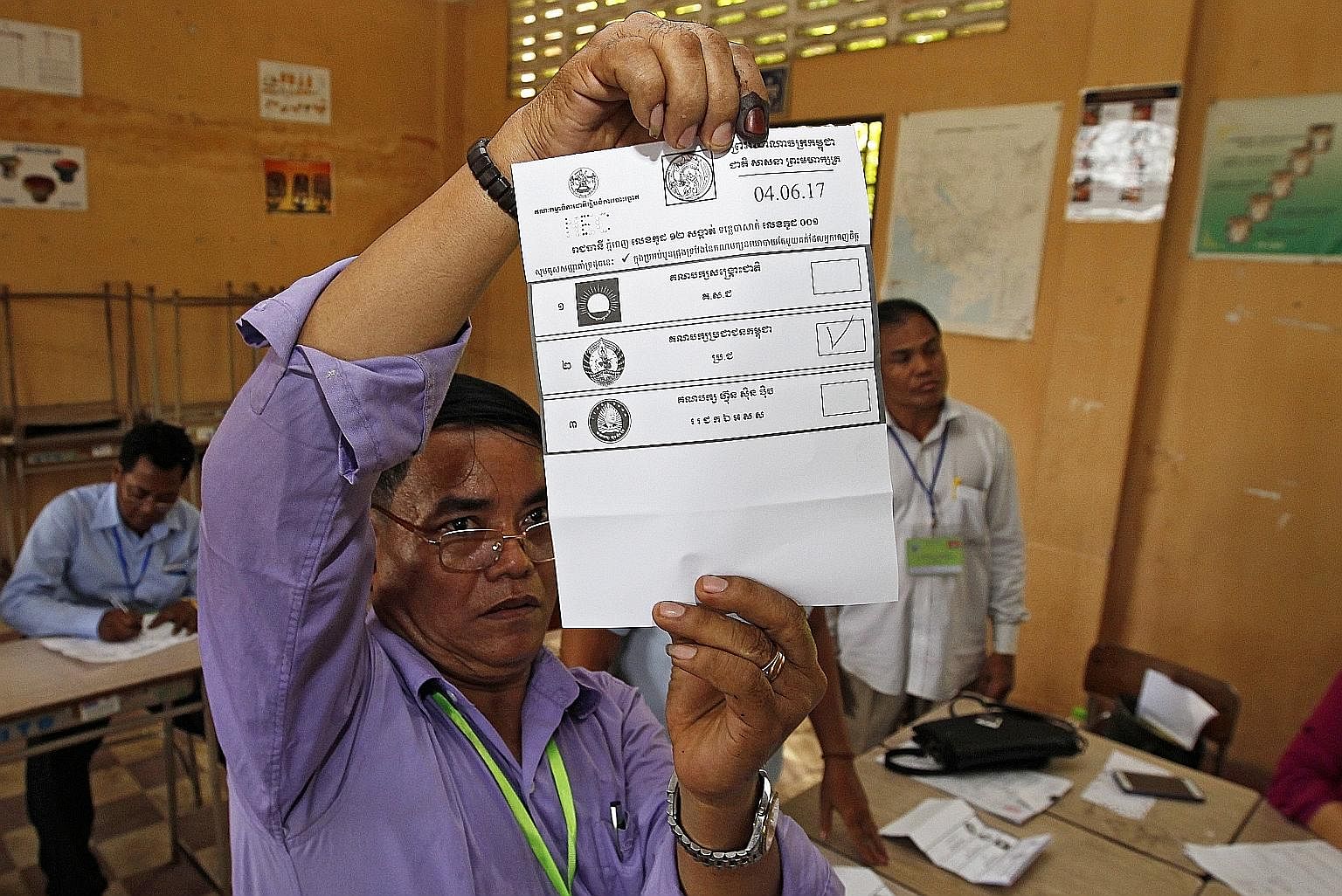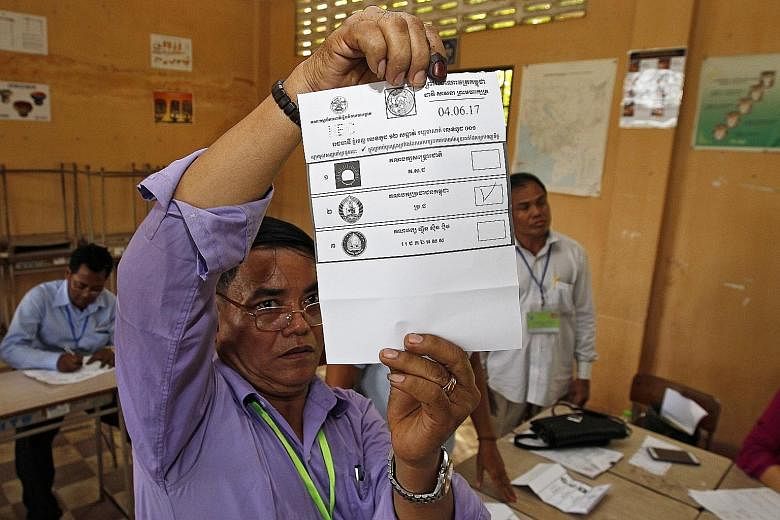Cambodia's Prime Minister Hun Sen expects his party to win next year's general election, despite ceding ground to the opposition in Sunday's commune ballot.
While full preliminary results had not been announced by press time, the region's longest-serving leader revealed through a Facebook post yesterday that his Cambodian People's Party (CPP) had won 51.4 per cent of the votes in the elections for 1,646 communes - or village clusters - on Sunday. This is a drop from the 62 per cent it achieved in the last commune elections five years ago.
The biggest opposition party, the Cambodia National Rescue Party (CNRP), said it won 46 per cent of the votes as well as snagged control of some 500 communes, a big jump from the 40 won by its component parties in the last commune polls.
Official results will not be published until June 25.
Mr Hun Sen, who broke with convention by personally joining the campaign leading up to Sunday's local elections, said on Facebook: "It is already clear that the ruling party will remain a majority party in the National Assembly."
The commune polls were widely seen as a gauge of public sentiment in the lead-up to the more significant general election next year.
The CNRP was quick to hail its control of the 500-odd communes as a victory, even though it did not achieve its target vote share of 60 per cent.

Based on the results, however, Mr Ou Virak, founder of the Future Forum think-tank, foresees a close general election next year. The political atmosphere could be "more volatile" as Mr Hun Sen heaps more pressure on the political opposition and civil society to consolidate his position, he told The Straits Times.
Mr Hun Sen is no stranger to strong-arm tactics, having warned of a civil war should his party lose. These warnings, however, have had little effect among voters hoping for some relief from the graft and cronyism endemic in the country.
"It's hard to get anything done," Mr Tim Mouen, a 52-year-old construction worker, told The Straits Times. "They don't seem to take care of us because we have no money."
The CNRP delivered a blow to the CPP's dominance in the last general election in 2013, shrinking its parliamentary majority from 90 out of 123 seats, to 68. The CNRP, which won the remaining seats, boycotted the legislature for a year in protest against alleged vote-rigging. The CPP then won 49 per cent of the votes.
Dr Chheang Vannarith, who chairs the Cambodian Institute for Strategic Studies, told The Straits Times that the vote for the CNRP at this point "is more of an anti-establishment vote, to voice dissatisfaction with the ruling party, because the opposition is still relatively weak".
Cambodia chalked up a strong growth of 6.9 per cent last year - which the World Bank thinks will be sustained over the next two years - but it has not been able to tackle larger problems like land grabs and deforestation in a systemic way. Meanwhile, more farmers are accumulating debt and struggling to pay off microfinance loans.


